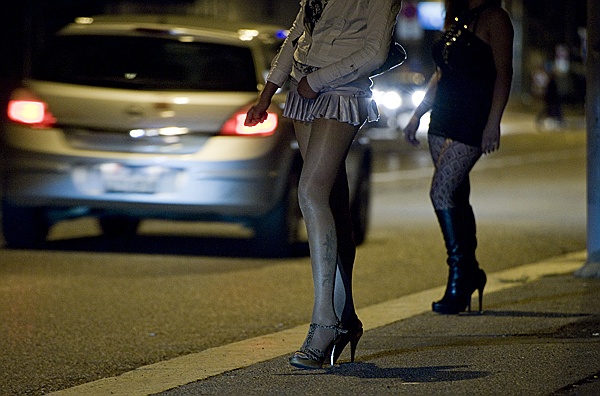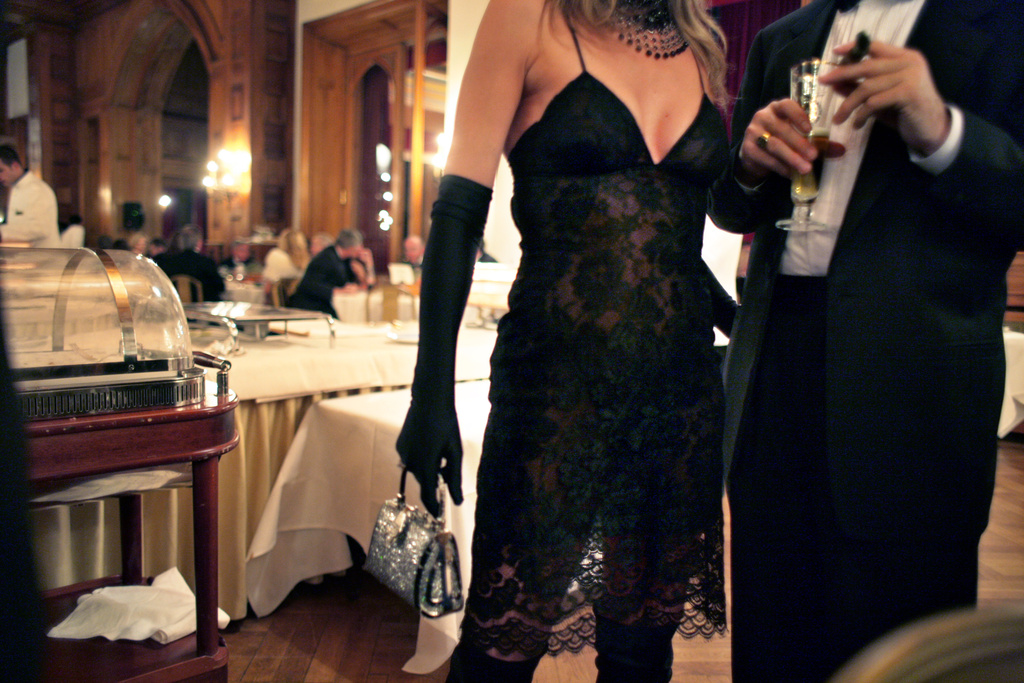Swiss await ban on “underage” prostitution

While Italy’s prime minister Silvio Berlusconi is facing trial for paying for sex with an underage girl, youth prostitution is still tolerated in Switzerland.
The 74-year-old Italian premier was ordered on Tuesday to stand trial on charges he paid a 17-year-old girl for sex and for misuse of influence. The trial is scheduled for April 6.
The indictment alleges Berlusconi paid for sex with the Moroccan girl, nicknamed Ruby, then used his influence to get her out of police custody when she was detained in connection with an unrelated theft.
Prosecutors say Berlusconi called police on the night of May 27, 2010, because he feared his relationship with the teen would be revealed.
The child prostitution charge carries a possible prison term of six months to three years. However, the abuse of influence charge is more dangerous: It carries a sentence of four to 12 years, and if Berlusconi is sentenced to more than five, he would be barred from ever again holding public office.
Different strokes
Just across the border in Switzerland, a different culture prevails in the sex industry – for the moment. The age of legal consent is 16 and there are no legal restrictions on working as a prostitute or using the services of a prostitute in Switzerland from the age of 16. Canton Geneva is one exception to this norm.
Social worker Martha Wigger, who runs the Xenia advice centre for women in the sex industry, gives a possible explanation why Switzerland is more permissive on this score.
“Sex working has been a legal activity in Switzerland since 1942, compared to Germany for example which only decriminalised prostitution in 2001. Therefore I would assume that it was also less controlled,” she told swissinfo.ch.
While canton Geneva and now also Zurich city authorities forbid prostitution under 18 by restricting work permits, other cities and cantons are waiting for the legal age to be increased at the federal level, a move which is in the pipeline.
Wigger sees this as a lazy excuse for a lack of action. She agrees that it is important to clarify this on the national level, but points out that cantons are well used to having to regulate such things themselves.
Wrong way
In line with a Council of Europe convention signed by the Swiss government last summer, the Swiss intend to criminalise the act of seeking sexual services from someone under 18, shifting the responsibility onto the clients.
For Wigger this is definitely the wrong way to go. “Not because we think the clients shouldn’t take on the responsibility but because the problem cannot be solved with legal penalties.”
The problem must be looked at very practically and realistically, Wigger suggests. “When a client goes into a salon where the lighting is low how he is supposed to check the sex worker’s ID?”
“We do believe that 18 year olds and those under 18 should be protected. But prevention work is what is needed here; grassroots work by non-governmental organisations.”
Small number
Wigger does not find it scandalous that Switzerland has waited so long for a change in the area of youth prostitution. “In our experience we have always confirmed that there is only a very small number of underage girls working in the sex industry.”
This assessment is not only based on the women who come to the advice centre. “We carry out social work in the field. We are always in these establishments and in contact with the women and therefore know that it is very rare.”
Zurich city police department and others familiar with the prostitution scene also share this view.
But something does need to be done, Wigger said. “Like the prostitution law that is now being worked on in canton Bern. Under this law owners of establishments will be obliged to ensure that no underage girls are involved in sex work.”
The restriction will also apply to salons, escort services, sauna businesses and the like, including those run by sex workers independently.
It’s essential for the law to be practicable, Wigger says. “The controls must be carried out, otherwise it makes no sense.”
In her 15 years work in this field, she has not observed any increase in youth prostitution. “The reality is that girls under 18 working as prostitutes tend to be drug addicts trying to finance their habit.”
Despite occasional reports of human trafficking, underage girls from eastern Europe are not a problem, according to Wigger. “Because women who want to work here need a work and residency permit which they would never receive if they were not yet 18.”
Justice Minister Simonetta Sommaruga recently announced that a ban on prostitution involving minors had priority. The minister signed a Council of Europe convention last summer that requires signatories to implement such a ban.
The government has not yet put forward a proposal on the matter but indications are that the age of consent will remain unchanged while seeking sexual services from a minor will be made a criminal offence.
The Council of Europe Convention on the Protection of Children against Sexual Exploitation and Sexual Abuse establishes links between demand and supply of child prostitutes by requiring criminal sanctions for both the “recruiters” and the “users”.
Prostitution is legal in Switzerland but prostitutes have to register with city authorities and health authorities and get regular health checks.
Having sex with someone under 16 is currently punishable by up to five years in prison.
The legal age for prostitution in Germany is 21, in France and Italy 18.
In Switzerland pimping is illegal and uncommon: most prostitutes operate independently from small studios via mobile phones. They cannot display their wares.
Human trafficking in persons can carry a prison sentence of up to 20 years and coercing a person into prostitution is punishable with up to ten years in prison. Besides trafficking for the purpose of sexual exploitation, legislation is being amended to make trafficking to exploit labour and the removal of human organs punishable offences.
(Translated from German by Clare O’Dea)

In compliance with the JTI standards
More: SWI swissinfo.ch certified by the Journalism Trust Initiative












You can find an overview of ongoing debates with our journalists here . Please join us!
If you want to start a conversation about a topic raised in this article or want to report factual errors, email us at english@swissinfo.ch.